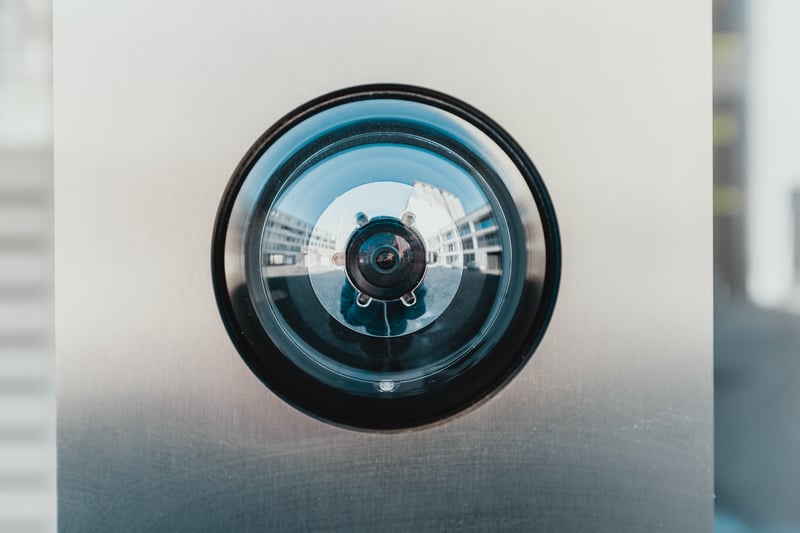With so many suppliers out there promising the world, let us cut through the technical jargon and marketing hype. Here are the simple questions you need to ask - and the answers you should expect - when searching for a new CCTV system and choosing between suppliers.
1. What type of system is best for me?
You'll typically be presented with three options during your CCTV search: analogue, IP or hybrid.
Cameras running on an analogue system transfer video signals in the traditional base band format, usually using coaxial or UTP cables to send video back to a digital video recorder (DVR).
Internet protocol (IP) cameras convert footage into data which is transmitted and broadcast as a digital stream over an IP network. As this stream comes straight from the camera, IP systems allow more flexibility in how and where the video is recorded.
Hybrid systems combine analogue and IP video. This can be a great way to start upgrading your CCTV system to IP without replacing everything at once - though once they see the difference, most people are pretty quick to finish the job!
2. How will it comply with data protection?
Yes, the laws of data protection apply to CCTV too. Thankfully it's easier to comply than you might think. You'll simply need to register for a licence through the Information Commissioner's Office, which is necessary anyway if you keep personnel and customer data.
If you are planning to use an external party to review your footage, they must be licensed by the Security Industry Authority (SIA) with Public Space Surveillance (CCTV) licences. You also need to clearly sign your premises to warn visitors that they are being monitored.
You can find more specific guidelines in the Code of Practice issued by the Information Commissioner's Office, which covers all areas of CCTV that are subject to the data protection act.
3. How will it be triggered?
Having someone on-hand at all times to constantly review CCTV footage is not only non-cost-effective, but comes with a risk of 'monitor blindness' which can actually increases the risk of missing incidents. As an alternative, most modern CCTV systems offer some kind of Video Motion Detection (VMD), which compares successive images of a streams, generating an alarm when major changes occur.
All supplier proposals should include a site plan that shows location and fields-of-view for detector and cameras, and your supplier should conduct a 'walk test' during commissioning to ensure that all of the detectors are operating correctly.
4. How will it perform at night?
It is at night that CCTV systems really need to earn their keep. All cameras require some kind of illumination to operate efficiently when it's dark, with the options being:
- White flood lights
- Flood infra-red
- Cameras with integrated infra-red
White flood lights are very effective bur can be a problem in residential areas. Additionally, both flood solutions require the whole site to be lit continuously, incurring installation and operating costs.
Some cameras have integrated IR, meaning that wherever the camera points is hit with a beam of IR. With everything contained within one unit, this negates the need for additional wiring and operation costs - but be sure to check that the IR's range is sufficient.
5. Is everything included in the price?
It's easy for companies to mask the total cost of a CCTV service with an attractive headline price. Keep an eye out for any hidden costs associated with:
- Equipment delivery and removal
- Installation including civil works
- Re-siting of cameras, detectors and any other equipment
- Lighting and illumination
- Alarm handling
- Finance charges associated with equipment purchasing/leasing
- Insurance
Ensure that your chosen supplier is clearly setting out what is included and what extra costs are likely to be incurred.
6. What happens if something goes wrong?
No matter how solid your suppliers have been, failures will happen on occasion. Between normal wear and tear, tough environments and the occasional criminal deliberately trying to put cameras out of action, its inevitable.
As a result, it's important to consider how your supplier will be able to support you in times of need. As a starting point, consider how they respond to these questions:
- How will you know if the system has failed or been tampered with?
- How quickly will you be able to get an engineer to site in the event of a failure?
- How will my site be protected if the system cannot be immediately fixed?
- If the system is defeated entirely, how will we be consequences?
Above all, ensure that your supplier clearly sets out the limits of their responsibilities, and informs you of any exclusions.
Sirus will be always transparent and reasonable with the answers to these questions and more - get in touch to find out how.

